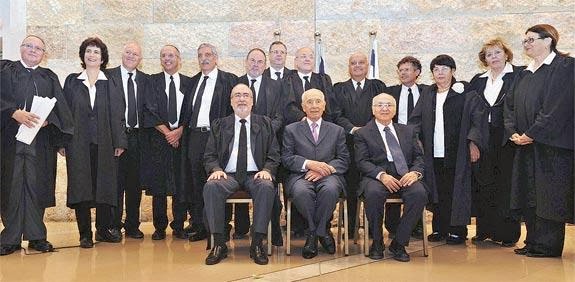Petition filed by Avigdor Lieberman, Yisrael Beitenu and several individuals asking for the DNA testing to prove Judaism to be disallowed is struck down
Israeli High Court Allows DNA Testing to Prove Judaism


Petition filed by Avigdor Lieberman, Yisrael Beitenu and several individuals asking for the DNA testing to prove Judaism to be disallowed is struck down





Crises et tensions



TURQUIE

ACTUALITÉ


PROCHE-ORIENT

PROCHE-ORIENT


PROCHE-ORIENT






Chronique de Jean-Jacques Nantel
Au Canada, toutes les provinces sont égales devant la loi
Et pourquoi le Québec ne s'allie-t-il pas avec le Nunavut et l'Alberta?
Chronique de Rémi Hugues
MOYEN-ORIENT
Leçon de théorie politique tirée du Printemps arabe
Chronique de Pierre Gouin
Le pouvoir du peuple
Justice ou charité
Chronique de Gilles Verrier
LA GRANDE ALLIANCE
La relation exemplaire franco-amérindienne
Chronique de Rodrigue Tremblay
ÉCONOMIE

Course à la direction de la CAQ


Éducation

Troisième lien entre Québec et Lévis

Soyez fiers de votre sentiment d'appartenance au Québec
12 façons de démontrer que vous êtes bien québécois

Aucun immigrant ne doit être à la charge de notre société
S'ils ne peuvent subvenir à leurs besoins, qu'ils s'en retournent chez eux

Course à la chefferie de la CAQ
Silence radio sur la Journée mondiale contre le cancer

Image. Trump n’a pas détruit le Canada, C’est nous qui l’avons fait!

Le long et pénible chemin vers l'indépendance du Québec

Tout athlète québécois devrait pouvoir défendre les couleurs du Québec à l'international
En apposant les 2 drapeaux côte à côte sur le maillot



Politique fédérale

La Conjuration des imbéciles*
Assumer la trahison comme une récompense carriériste grâce aux collabos ayant voté pour la caste de traîtres à la Nation Canadienne Française**

Immigration Canada à blâmer de les laisser entrer sans filtre suffisant
comprend une liste des pays jugés dangereux à bloquer

La vente de la Banque Laurentienne
L'État québécois et la Caisse de dépôt et placement du Québec doivent bloquer la vente

Sans l’adhésion de l’État québécois aux États-Unis d’Amérique* le destin politique de la Nation Canadienne Française sera celui sous un régime sino-canadian
Comment le PLC-PLQ, ses complices anglo-allophones et les antipatriotes s’organisent pour anéantir la majorité politique de l’électorat canadien-français**

La Guerre de Sept Ans se poursuit
L'invasion américaine de 1775, rdv manqué avec...la Louisiane du Nord

Jour du drapeau


La survie nationale sera toujours un projet collectif et non une affaire de politiciens carriéristes
La trahison par l’imposture gouvernementale, le mal caractéristique des politiciens antipatriotes

Éducation
La « bienveillance » de Charles Milliard

Nous formons un ensemble composé de 1 000 facettes scintillantes
pour souligner mes 1 000 articles publiés sur Vigile

C'est à chaque population qu’il revient de se soulever contre son gouvernement inique
Que l'Occident les motive et mobilise par le biais d'internet

Présenter les 2 côtés de la médaille, pas juste 1
Montrer autant l'approbation que la critique

La survie nationale du Québec plus menacée que jamais avec l’imposteur premier ministre prochinois Mark Carney
L’indépendance du Québec, l’urgence collective de libération nationale vs la destruction par l’imposture gouvernementale PLC complice du néo-impérialisme communiste chinois

Trop d'abus, trop de profiteurs
Il faudra remplir certaines conditions de base


Sans l’adhésion de l’État québécois aux États-Unis d’Amérique* le destin politique de la Nation Canadienne Française sera celui sous un régime sino-canadian
Comment le PLC-PLQ, ses complices anglo-allophones et les antipatriotes s’organisent pour anéantir la majorité politique de l’électorat canadien-français**

Immigration Canada à blâmer de les laisser entrer sans filtre suffisant
comprend une liste des pays jugés dangereux à bloquer
